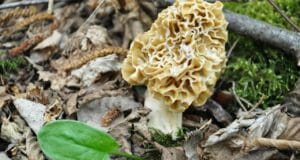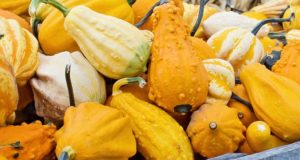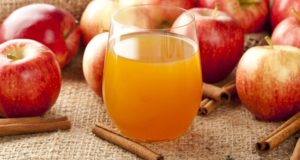America’s food supply is in danger, and not just from Monsanto and GMO crops. The declining number of farmers in the United States has paved the way for more imports of consumables from China.
A recent congressional hearing about the increasing amount of food being shipped from China revealed that only 2 percent of such products actually undergo safety testing. Although there was rare bi-partisan support over the potential health risks posed by the lax oversight, the only action the governing body took was to plan another meeting on the matter later this year.
Between 2001 and 2008, the Food and Drug Administration (FDA) inspected only 46 Chinese food companies. Fears about a contaminated food supply are not unfounded. Growing and raising our own food, and shopping at local farmers markets and organic food stores are the best options to avoid putting a possibly unsafe morsel of food from China into your mouth. In 2013, the number of organic farms in the Midwest and Rocky Mountain states decreased for the first time. Finding healthy alternatives to commercial food products will be even tougher going forward.
Almost half of the organic soybeans sold in the United States come from China and other countries. Chinese food brokers can only vouch for the “A” beans. The cheaper and more often purchased “B” beans merely come with a certification letter claiming they are organic. Mark Alan Kastal, co-director of the Cornucopia Institute, stated during the congressional hearing that America could not compete with China until there is a level playing field. Kasal is calling for “aggressive certification” and enforcement of organic law.
Although American organic farmers must jump through a host of government hurdles in order to label a product organic, Chinese crop exporters are not subjected to the same standards.
New Survival Seed Bank™ Lets You Plant A Full Acre Crisis Garden!
Multinational agriculture businesses are destroying the rich tradition of farming in America and the government is complicit in the downfall. Policies which essentially regulate the family farmer out of business, coupled with unfairly regulated food imports from China, make a food shortage in the United States far more likely.
While the lack of American grown produce and meat are a frightening enough prospect to mull over, China’s reliance on agrochemicals is equally disturbing. The country which now exports a multitude of the consumables which fill our grocery store shelves is also the largest pesticide producer in the world. The food supply in China is “polluted” with chemical pesticides, veterinary medicines, and antibiotics, according to a Food and Water Watch report. Deliberate chemical adulteration at Chinese food processing facilities may also pose health risks for Americans (and their pets) which ingest the products.
Many shoppers carefully read the labels on food products in search of organic status and check out the number of calories and carbs in any given item. We now must get in the habit of carefully reading the label to see if any part of the consumable stems from China. America once fed the world, but now China is once again beating us at our own game and now boasts the largest agricultural economy on the globe.
Almost 50 percent of all cod sold in the eastern United States comes from China. A total of about 78 percent of all tilapia also comes to our dinner plates from overseas. If you think big, red, juicy American-grown apples are used to make the bulk of apple juice we give to our children, you would be wrong. China now produces at least 70 percent of the apple juice sold across our country.
One out of every dozen cans of pineapple comes from China. Two in five containers of processed mushrooms also come from the new agribusiness leader. Frozen spinach, clams, salmon, and crab are also now increasingly arriving to your local grocery store from a Chinese shipping container.
The extent that China has invaded our shopping choices does not end at fresh fruits, veggies, meat, fish, and processed foods. Almost 85 percent of imported vitamins that are added to foods and artificial vanilla also come from China. Citric acid, the preservative and flavor enhanced often used in cheese, baked treats, and soft drinks also come from, you guessed it – China.
Chinese imports account for more than 50 percent of product recalls, according to Consumer Safety Division statistics cited by Representative Bill Keating during the congressional hearing. A common theme ran throughout the congressional hearing, concern that Chinese imports pose a significant threat to both US food safety and the agriculture industry. Those who spoke in support of more stringent food import policies also noted that the Chinese people themselves have little to no confidence in the safety of their own food supply.
Rising food prices have prompted many Americans to simply choose the cheapest can or package when running to the local supermarket. There should never be any item placed on store shelves that is not safe to consume. But, the Monsanto Protection Act and the increasing government opposition to GMO labeling policies readily indicate that we must be ever more diligent with what we put into our shopping carts.
Growing your own food is always far less expensive than buying items from a store. While not every American has enough space to grow all the consumables their family needs, supplementing store bought items with organically ones grown yourself is a step in the right direction. Joining or starting a local food network with others concerned about the food supply is another viable alternative to shopping at a local grocery store.
Money is nice, but old-fashioned bartering is yet another way to garner healthy food, meat, and fish for your family. Trading goods and services with others who grow or raise something you do not will allow Americans to garner organic consumables and to stop being a slave to the commercial food chain. Nearly everyone can make or do something that someone else needs or wants. Trading homemade soap, essential oils, or flats of flowers to another for a bushel of apples or cuts of beef is entirely feasible. Babysitting, crop tending, or tutoring services are great barter options as well.
Since the middle of the 1990s, five mega-biotech companies have purchased more than 200 independent seed producing companies. The handful of corporations which now largely control what we eat typically produce “suicide” seeds. Such seeds create vegetables and fruit with sterile seeds. When selecting seeds to start a patio, indoor, or backyard garden, always purchase heirloom seeds so you can harvest seeds from your yield to use again the following year.
 Off The Grid News Better Ideas For Off The Grid Living
Off The Grid News Better Ideas For Off The Grid Living





